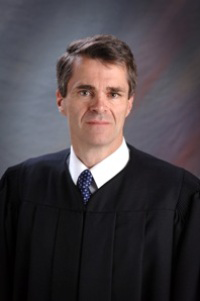Judge

Brown County
View state court bio
Contact with Chambers
• Preferred method to contact chambers: Email
• To whom may attorneys direct scheduling/logistical questions? Court admin
• To whom may attorneys direct substantive questions? Law clerk
Motion Practice
• Set forth your practices and procedures for scheduling motion hearings. Hearings are scheduled through court administration. Compliance with applicable rules, especially Rule 115.10, is expected.
• Identify any type of motion for which you do not require a hearing. Motions in limine in criminal cases.
• Do you accept telephone calls from attorneys to rule on discovery disputes that occur during depositions? Yes.
• How much time do you allot for motion hearings? It depends on the motion and the needs of the parties.
• Set forth your practices and procedures with respect to attending a hearing by telephone or video conference. Remote appearances are almost always allowed for hearings at which no evidence will be presented. If there will be witnesses, remote appearances are allowed if there are exceptional circumstances.
• Set forth your practices and procedures with respect to discovery motions. Before a hearing on a discovery motion is scheduled, I want to have an informal telephone or video conference to try to resolve the issue. The party raising the issue can submit a short letter brief; the opposing party has five days to respond with a short letter brief.
• Set forth your practices and procedures with respect to stipulations of the parties, including stipulations for protective orders. Stipulations can be submitted without scheduling a hearing.
• Do you have any particular requests or procedures relating to requests to amend the scheduling order? No.
• Set forth your practices and procedures with respect to default proceedings. I follow Rule 117 of the General Rules.
• Set forth your practices and procedures with respect to handling emergency motions. I don't have established practices and procedures for emergency motions.
• If your preferences for motion hearings by remote means differ from any of your earlier answers, please describe your preferences for remote video conference hearings. N/A.
• Do you want to receive paper courtesy copies of the parties' written submissions? If you do, set forth the number of courtesy copies and identify any document type you do not want to receive. No.
• Set forth your preferences for handling informal requests for relief using the expedited, informal non-dispositive motion process set forth in Minn. Gen. R. practice 115.04(d). This procedure is the same as the procedure for informal conferences before discovery motions are brought.